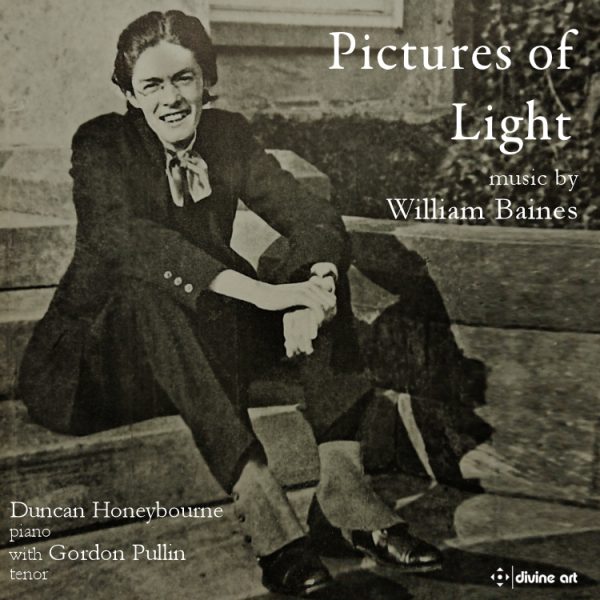Fanfare
The English composer-pianist William Baines (1899-1922) was a composer of enormous potential who died before his 23rd birthday, leaving us to wonder what might have been. Two others who come to mind similarly are Joan Crisóstomo Arriaga (1806-1826 and Lili Boulanger (1893-1918). This collection of mostly piano music (Baines left behind more than 150 works for the instrument), plus five songs, reveals a composer of significant talent and an individual voice. Chopin and Debussy seem to me to have been influences on Baines, but his music, even though written at such a young age, is not merely imitative.
Paradise Gardens was inspired by a scenic evening walk near York that Baines took with his mother and brother at the age of 19. He wrote about “a lovely view overlooking the gardens of the Station Hotel. You looked through the thick green foliage on to the grounds, which were beautifully laid out with flowers – and in the center a little fountain was playing. A perfect blue sky and the sun shining low made indeed a grand picture. ‘Paradise Gardens’ will on some future occasion probably be used as a title for one of my compositions.” Indeed he began writing this grand tone poem for piano two days later. The 10-minute work is lovely, combining poetic tenderness and intimacy with the grandeur Baines described.
The Naïad is one of a set of three Concert Studies, modelled on Ravel’s “Ondine” in its textures. Nature was a constant source of inspiration for Baines, as we hear in other piano works on the program: Silverpoints, Tides, The Island of Fay, and Pictures of Light. In Tides, which draws its inspiration from the sea, the first movement, “The Lone Wreck,” paints a desolate picture of an abandoned ship resting on the ocean bottom as the waters swirl around it. It is not too far-fetched to hear music that presages Britten’s Peter Grimes composed more than two decades later. Baines uses chromaticism to darken the colors of his music, bringing to it a melancholy aura.
The five songs that follow are set to a variety of poets: James Elroy Flecker, John Banister Tabb, Christina Rossetti, Sappho, and Rabindranath Tagore. The songs are lovely and sung with great care by British tenor Gordon Pullin, whose voice, unfortunately, sounds considerably past its best years. However, there are almost 70 minutes of fine piano pieces before the songs arrive. The disc concludes with a piano work by Robin Walker, composed in 1999 to mark the centenary of Baines’s birth. At the Grave of William Baines is an appropriate tribute, recalling to some degree Baines’s style but also embracing the duality of “exaltation and tragedy” in attempting to celebrate Baines’s gift while mourning his loss. This, along with Baines’s piano music, is sensitively and colorfully played by Duncan Honeybourne, who also contributes the fine program notes. Excellent recorded sound rounds out the picture.
@divineartrecordingsgroup
A First Inversion Company
Registered Office:
176-178 Pontefract Road, Cudworth, Barnsley S72 8BE
+44 1226 596703
Fort Worth, TX 76110
+1.682.233.4978












